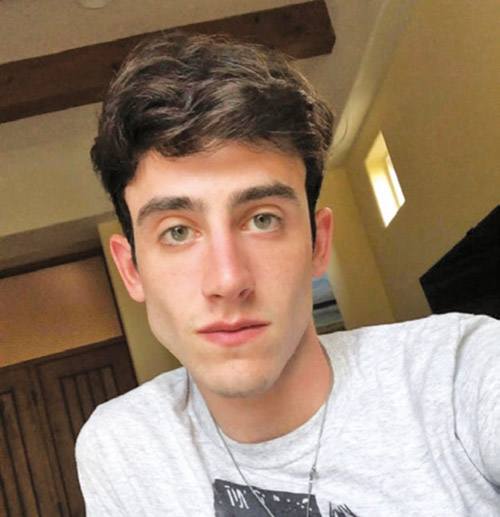




“I don’t know if non-Jews will ever understand the horror of watching the media play devil’s advocate for those who want your people dead,” tweeted Blake Flayton on May 11. Flayton is speaking as a founder and member of an up-and-coming group of pro-Israel college students, known as the New Zionist Congress. Both Flayton and his co-founder Isaac de Castro have made it their personal mission to create a space for Jewish students to speak up against antisemitism and express Zionist opinions without the vitriolic reactions from critics that often arise.
“On college campuses the nation over, Jewish students are wrestling with a breed of prejudice we were brought up to believe could never thrive in America,” reads the opening of their mission statement, or as Flayton called it, the organization’s manifesto. Both Flayton and de Castro explained that although they always considered themselves advocates for social justice, their belief in the Jewish right to self-determination made them targets of hatred on campus. And by November 2019, Flayton had just about enough of the hostility, which he described as “slipping into antisemitism,” ultimately leading to his first piece for the New York Times about his experiences.
In his debut report, which he wrote while still a sophomore at George Washington University, Flayton poignantly described how his Jewish pride and Zionist beliefs pushed him to the fringes of the various progressive groups he so strongly affiliated with. He explained that many students, and Jewish activists in general, often refrain from calling out antisemitism out of fear—of being sidelined, of losing friends, and of being called racist or colonialist. “This is our new normal,” he wrote.
Flayton’s opinion piece generated lots of buzz, including attention from columnist and author Bari Weiss, who urged him to form an organization for college students suffering from the same discrimination and fear. Flayton connected with de Castro, a Panama City native who started Jewish on Campus, a social media-based movement highlighting antisemitism in colleges across the country. The two of them got moving on an incredibly ambitious undertaking: to make Zionism accessible again.
“We want to revitalize cultural literacy in the young Jewish community,” said de Castro. “We have seen a lot of Jewish students who want to connect with their heritage and are not necessarily given the space to do so on campus.” Both co-founders explained that the goal of the New Zionist Congress is to create such a space for the thousands of other young people who have expressed a need to be safely Jewish and Zionist.
The Congress’ broad vision of safe pro-Israel activism has manifested in many ways, well beyond individual college campuses. Among its most rigorous efforts is in the digital space, where Flayton and de Castro both run the Twitter and Instagram pages—chock-full of witty pro-Israel statements—entirely by themselves. When asked if they were looking to partner with similar Zionist groups on certain initiatives, the co-founders were adamant that their organization was intended to be an impartial grassroots movement, and there are no plans to change that. “We don’t want to run the risk of alienating anyone … we want to hold our independence and authenticity,” Flayton explained.
On the Congress’ flagship podcast, “New Zionist Podcast” and streaming on Spotify, Flayton co-hosts with Zionist students Ysabella Hazan and Noah Shufutinsky, where the three discuss current events in a pro-Israel context. Shufutinsky, aka “Westside Gravy,” is also a college student and wrote the podcast’s theme, “Diaspora,” in 2019 about his experiences being a Black Jew who “holds his heart in Jerusalem and Africa.” The song is an emotional reflection about a people longing for a place in their homeland—the overarching ideal of the New Zionist Congress—and how it has affected the new wave of young Zionists across the globe:
I hear ’em talking about the Jews will not replace us;
On college campuses they’ve been trying to erase us
And all that BDS campaigning? We’ve dealt with worse problems than racist associations
Of students all acting stupid
And thinking they’re making differences
Picking and choosing truths
And not knowing what real resistance is
You say you value social justice; are you kidding us?
Beyond a strong digital presence, both Flayton and de Castro have a long-term vision for what the Congress will be able to accomplish, especially post-pandemic. Their goal is to set up local chapters of the NZC in communities across the country, each creating its own programming, including book clubs, discussions and lectures. In order to help get these smaller groups off the ground, Flayton said that they would send around members of the Congress’ advisory board to “garner excitement.” Ultimately, the co-founders hope that there will be enough of a global draw to hold an annual conference in Tel Aviv for active participants.
The New Zionist Congress’ mission states that its goal is not just to transform college campuses. “We aim to transform ourselves … from crouching to standing, from defending to affirming, from shame to pride.” And so, Flayton, de Castro and their band of student activists are embarking on a bold quest: to make sure no one ever apologizes for being a proud Jew again.
“It is now our turn to take a page from the ancient Maccabees and meet the darkness with abundant light.”
For more information, or to get involved, visit www.newzionists.org.
By Channa Fischer












